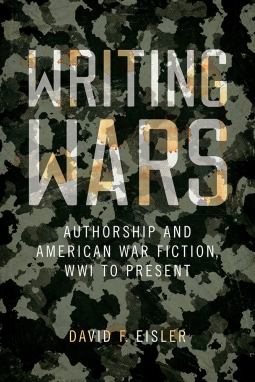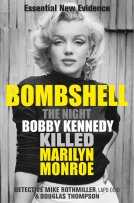
Writing Wars
Authorship and American War Fiction, WWI to Present
by David F. Eisler
This title was previously available on NetGalley and is now archived.
Send NetGalley books directly to your Kindle or Kindle app
1
To read on a Kindle or Kindle app, please add kindle@netgalley.com as an approved email address to receive files in your Amazon account. Click here for step-by-step instructions.
2
Also find your Kindle email address within your Amazon account, and enter it here.
Pub Date Dec 14 2022 | Archive Date Dec 14 2022
University of Iowa Press | University Of Iowa Press
Talking about this book? Use #WritingWars #NetGalley. More hashtag tips!
Description
Who writes novels about war? For nearly a century after World War I, the answer was simple: soldiers who had been there. The assumption that a person must have experienced war in the flesh in order to write about it in fiction was taken for granted by writers, reviewers, critics, and even scholars.
Contemporary American fiction tells a different story. Less than half of the authors of contemporary war novels are veterans. And that’s hardly the only change. Today’s war novelists focus on the psychological and moral challenges of soldiers coming home rather than the physical danger of combat overseas. They also imagine the consequences of the wars from non-American perspectives in a way that defies the genre’s conventions. To understand why these changes have occurred, David Eisler argues that we must go back nearly fifty years, to the political decision to abolish the draft. The ramifications rippled into the field of cultural production, transforming the foundational characteristics— authorship, content, and form—of the American war fiction genre.
Advance Praise
“A very smart, very relevant work. Any scholar of American war fiction would find this study extremely useful.”—Eric Bennett, author, A Big Enough Lie
“Writing Wars is a brilliant excavation of the stories Americans have been telling ourselves about war for the past century. Eisler has written a sharp, engaging, and troubling cultural history.”—Phil Klay, National Book Award winner, author, Redeployment
Available Editions
| EDITION | Other Format |
| ISBN | 9781609388652 |
| PRICE | $92.50 (USD) |
| PAGES | 250 |
Average rating from 5 members
Featured Reviews
 Reviewer 345792
Reviewer 345792
Like many readers, I've always tended to defer to the veterans in matters of writing a war novel. I prefer them be written by authors that know firsthand what war is like, for the realism, for the psychology, for their ability to convey what civilian writers can't. Whilst I don't and never have avoided books authored by people with no combat experience, I've definitely noticed the differences when it's a veteran author. The battle scenes are an obvious point of divergence, the non-veterans tend to give it a more "cinematographic" feel because, since they never saw combat themselves, they have to base them off of descriptions by others, secondhand knowledge; whilst the veterans tend to drag you into the battlefield with them. Of course, that's not always the case, some non-veterans like Stephen Crane are so good that you simply can't believe they never fought, and not every veteran author is a Remarque because some do succumb to Hollywoodish tropes about war.
Let's not even start on authors that use war as simple decoration, background noise, for romantic plots. Eisler wisely steers clear of this, that has become the most common trend to "writing wars" these days, and focuses instead on mainstream novels that really are about war, in which war is the story or in which war-related subjects are key plotlines, books like "The Things They Carried" to name one example.
But there's more to writing war novels than the realism of scenes when artillery fire is flying over a character's head. There's the psychology of combatants, the PTSD, the relationship between the military and society, the impact on the family of combatants, the civilians living through wartime or near a war zone, the fallout and postwar coming to terms with the consequences... So many adjacent factors, big and small. Who is qualified to write about all this? David F. Eisler's book provides us with the answer, and it's a changing one. Although for most of history, the answer from the American side was that only veterans could write about war, this attitude wasn't static but evolved in four stages.
Writing war novels became more popular after WWI, as there were literal millions of veterans from the trenches. At this stage, they sought to consolidate the veteran as the sole qualified writer of war and became exclusivist: either you're a veteran or you shut up and write something else. The dictum to stay in your lane if you weren't a veteran was enforced sometimes discriminatorily, like the "Stick to your farm and farmer folk" diss to Willa Cather for writing a war novel without any experience in war. Even so, the veteran writers weren't as prevalent yet, because the great majority of writers of war novels post-WWI were civilians.
Then came Hemingway and consolidated the veteran as the authority on war, even though Hemingway's connection to war was more as an ambulance driver and as a newspaper correspondent than as an actual soldier. World War II was the "tell it like it was" stage, that produced the kind of veteran authors that wrote harsher novels and showing the beginnings of disillusioned bitterness that'd be the norm in the next stage. Those writers had come home to an America that hadn't suffered the hell Europe had, with their civilian population unharmed and blissfully unacquainted with air bombings, and embracing that they were the good guys that had defeated a great evil. This generation sought to enlighten the folks at home about the price they had paid for this victory.
The third stage was Vietnam, that unpopular war that saw returning veterans being attacked and insulted in the streets. The veterans of the previous war could at least get respect from the public, but the Vietnam veterans faced hostility at home, and to counter this verbal abuse, they sought to find a way to make the folks at home see the unique hell they had suffered through as a means of self-justification and protection, to cope. These authors were conscripted, they didn't choose, and the civilians surely knew that too, but it didn't shield them from the backlash, so "You had to be there" to understand the uniqueness of Vietnam became their retort, no civilian ever would be able to unless they shared the experience.
Eisler sums this long period up like this:
<i>Between the early 1920s and the end of the war in Vietnam, the American war fiction genre was built on the philosophy that personal experience, narrative authenticity, and literary authority were inexorably linked, making the genre the providence of veteran-authors and excluding most other voices until the immediacy of personal experience as a source of authority and authenticity faded into history.
Then something happened.</i>
That "something" was a result of the abolition of conscription in the US in the 70s that led to the military becoming an all-volunteer entity. With that, the exclusivism of veteran authorship eroded and the "you don't have to be a veteran" final and still en vogue stage came to be, with a healthy dose of "You volunteered to get screwed" attitudes towards veterans at large and veteran-authors. Currently, the opinion is that a veteran is no longer the sole authority, any other writer is just as good at writing war. But, this new attitude has resulted in some peculiar status quo that's not really entirely devoid of the old attitudes but adds new particularities stemming not just the most recent US wars but attitudes about authenticity in writing and OwnVoices, as Eisler summarises:
<i>American authors who write from Iraqi or Afghan perspectives thus face a paradox: writing strictly from their own perspective risks the marginalization of others by foregrounding the American experience as the most deserving of remembrance, while including non-American perspectives risks appropriating their voices and thereby controlling the narrative without their participation. Ironically, the veteran-authors
who make this narrative choice are using the cultural authority accrued through their experience as well as the moral authority of the volunteer military to attack the very system that granted them the cultural capital to do so. Apart from having served overseas and, perhaps, spending more time personally with the local people, these authors have no better claim to represent the voice of the Other than a nonveteran author who simply wishes to empathize with that perspective.
Yet the authority of their experience somehow lends the narrative a level of credibility that functions differently from that of the author who has no personal experience with the conflict.</i>
That last paragraph rings especially true to me. I have a dear friend that's an Iraq veteran, and every time I've wanted to read a war novel that's not placed in WWII, I've asked him for recommendations. Unsurprisingly, he always recommends books by veteran authors, fiction and non-fiction, though I suspect he doesn't do it consciously but rather reflexively. He likes to share his experience, and from my own observations, he tends to pick books that emphasise on the suffering of the average "grunt" and on combat PTSD. Eisler also has some interesting commentary on this aspect in the last chapters, I think I'm going to get a copy of this book for my friend.
What I liked the most about this book was that there's no attempt to convince you of the rightness or wrongness of veterans as the sole authority on war fiction: it presents the facts, explains the context historically and personally (when authors are used to illustrate a point), explains the complicated web of military-civilian relations throughout the wars America has fought, especially the Iraq/Afghanistan ones that are still fresh in people's memory, and lets the reader make up their mind on their own. It also makes it clear this is about American literature, and doesn't get lost in digressions into other parts that'd be biting more than can be chewed given the vastness of literature. It's a concise, analytically clear, thoughtful, and interesting micro-history book.
4.5 stars!
David F. Eisler's Writing Wars: Authorship and American War Fiction, WWI to Present is a fascinating breakdown of the relationship between the veteran-author, the civilian, and the modern war novel. I have always had a love for war literature despite never having enlisted myself. I grew up listening to my grandfather tell stories about his time in the military during the Vietnam War, and that interest translated into a love for stories unpacking the Vietnam War. But despite his time in the army, particularly at a time when military conscription was highly debated, he never went overseas; he enlisted as a young man in the 1960's and remained state-side for all of his enlistment. I have felt strange identifying my grandfather's Vietnam War experience as the reason for my fascination when I know that he remained stationed in Kentucky; but, as Eisler explores in this work, the claim to experiencing a war is a complex one.
Eisler unpacks the way seminal texts about WWI, WWII, and the Vietnam War showcase the civilian-military relationship and how, through ear war, the genre of war fiction evolves. Eisler presents a series of questions that will leave you considering everything from who deserves to tell a story to how the American public's relationship with war and military intervention has affected the media we consume. A compelling look at author authenticity and what it means to "write what you know", Eisler's Writing Wars is a phenomenal read for the history buff and the literary nerd alike. Wonderful read, 5/5 stars.
Readers who liked this book also liked:
L.M Montgomery
Children's Fiction, Comics, Graphic Novels, Manga, Teens & YA







